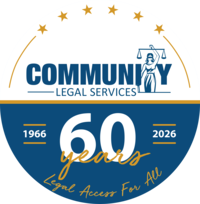The Advocate’s Voice: PACE Yourself with These Loans
Anyone who has lived in Florida for long enough knows that it is the home of extreme weather. From hurricanes and Atlantic storms to 80% humidity and 100-degree heat, Florida’s climate tests the integrity of storms throughout the state.
Home improvements and repairs are a necessity for Floridians; however, financing these projects can be difficult for many residents. Property Assessed Clean Energy (PACE) loans have become a popular financing tool for homeowners looking to improve energy efficiency and weatherization without upfront costs. By offering repayment options such as payment to property tax bills, PACE loans offer an alternative to traditional financing methods for certain home improvement projects. However, while these loans can provide value, homeowners must understand their structure and potential risks before proceeding.
How PACE Loans Work
According to the Florida PACE Funding Agency, “Florida PACE is a public entity that provides homeowners with financing options for energy-efficient and hurricane-resistant home improvements… Florida PACE oversees program administrators who work with homeowners… to finance their projects through long-term, fixed-rate assessments added to their property tax bills.” These improvements include new roofs, solar panels, A/C units, power generators, and other energy-efficient or weatherization home improvements. Generally, homeowners pay for these improvements with financing through third party program administrators. This financing can result in annual payments attached to their property taxes, or in some circumstances, the payments may be made directly to the third-party administrator. These structures enable homeowners who may not qualify for conventional loans to access financing for essential home improvements.
Key Considerations and Potential Risks
While PACE loans have advantages, there are important factors that homeowners should carefully consider before taking on a PACE loan.
- PACE loans may increase the property tax burden on homeowners. Since homeowners may be able to repay PACE loans through property tax assessments in some locations, they can significantly increase annual tax bills. In some cases, homeowners have reported 100% to 200% increase in tax bills, which can be an unexpected financial strain.
- Whether incorporated into your tax bill or paid directly to the third-party administrator, PACE loans become liens on your property. PACE loans create priority liens, which means they can increase potential foreclosure risk. Many traditional lenders will not offer refinancing options on existing loans if the home has a PACE loan. The threat of foreclosure and the difficulty refinancing PACE loan payments make these loans a very risky way to finance home improvement projects.
- Consumers have reported potentially misleading sales practices from contractors recommending the use of PACE loans. Contractors will recommend homeowners who do not qualify for traditional financing to use PACE loans and claim the savings from the energy-efficient improvements will more than make up for the increase in property tax assessment from the PACE loan. Even if contractors make these promises of savings in good faith, the savings from the upgrades are not guaranteed. Increasing the risk of foreclosure on your home based on uncertain promises of savings is incredibly risky.
Making an Informed Decision
PACE loans are potentially risky tools for homeowners seeking to enhance their properties’ storm readiness or energy efficiency. Understanding the property tax burden, potential foreclosure risk, and misleading sales practices that derive from the structure and purpose of PACE loans is essential before committing to a PACE loan. Do not let your desire to prepare for the extreme Florida weather cause you to lose your home. Be informed of the financial decisions you make.
If you or someone you know is having trouble repaying PACE loan, has experienced deceptive trade practices, or is in foreclosure over a PACE loan, reach out to our legal team at Community Legal Services for Assistance through our helpline at (800) 405-1417 or make an in-person appointment at our office.
Written by: Joseph Gage
